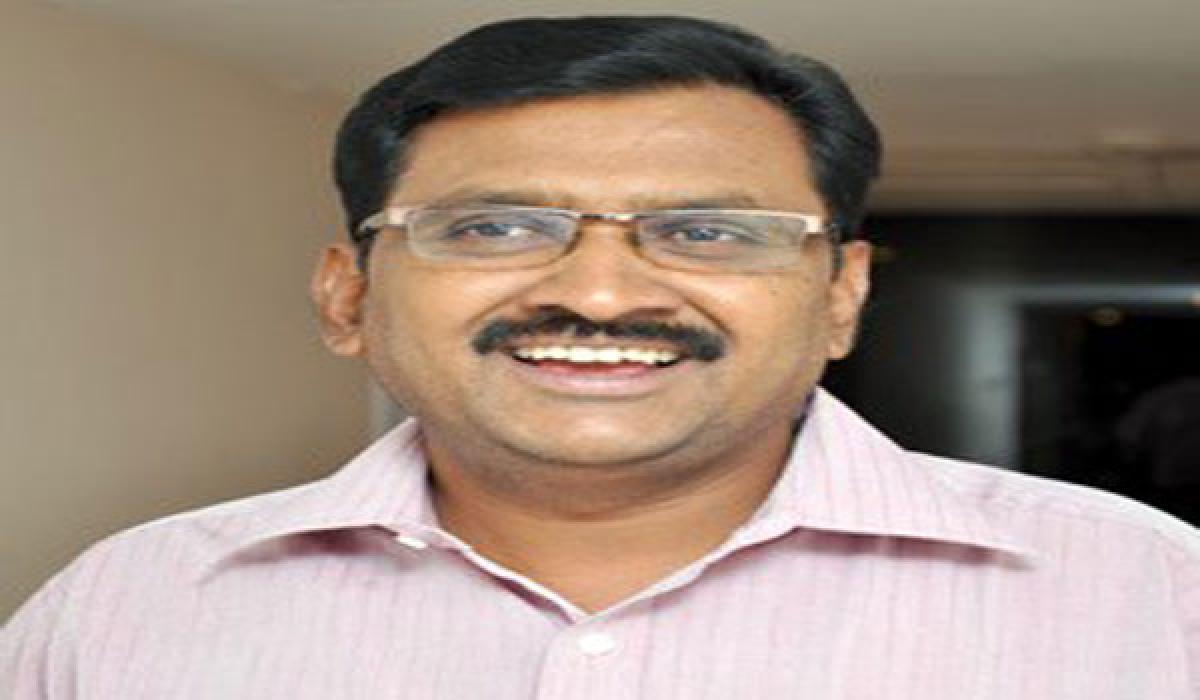Live
- Radhika Apte welcomes first child, shares heartfelt post
- Jacqueline dazzles at Da-Bangg Reloaded concert
- Time to boost measures to prevent drowning, save children: WHO
- TDP achieves milestone with 73 lakhs membership registration, says Chandrababu
- South Korea: Main Oppn hails Yoon's impeachment motion passage as 'victory for people, democracy'
- RG Kar issue: Tension flared over parallel protests by Congress, SUCI(C) outside CBI offices
- After furore, Central Railway revokes order to raze Lord Hanuman Temple at Dadar
- Now hoteliers' body in Bengal's Alipurduar shut doors for Bangladeshi tourists
- District Collector Encourages Students to Utilize Government Facilities for a Better Future
- Per capita availability of fruits, vegetables increases in India
Just In

The Telangana State Public Service Commission (TSPSC) Chairman Ghanta Chakrapani had never heard about Osmania University during the early days of his school and college education. Walking down the memory lane, Chakrapani, who hails from a small village in Karimnagar district,
Hyderabad: The Telangana State Public Service Commission (TSPSC) Chairman Ghanta Chakrapani had never heard about Osmania University during the early days of his school and college education. Walking down the memory lane, Chakrapani, who hails from a small village in Karimnagar district, said that during his early days, he had to struggle a lot to complete his SSC. He said he studied in different social welfare hostels and took BiPC in intermediate without having an orientation to pursue science.
“My goal was to settle early in employment so as to not to be a burden on my family.” It was with this view I had discontinued BSc and took admission in Teachers Training Course and joined a local newspaper called Jeeva Gedda, started by a prominent activist and journalist of that time B Vijay Kumar. The present Telangana Press Academy Chairman Allam Narayana was sub-editor, another senior journalist K N Chary was the news editor. Life was comfortable for him drawing Rs 390 monthly salary and also his role as a journalist had opened a window.
Those were the times in which left wing politics were everywhere and a new political system had emerged deep penetrating into villages with the emergence of TDP led by NTR.At the height of the left wing activities being suppressed with an iron hand by police the situation had turned volatile and he was forced to leave Karimnagar without giving his BA external degree examinations and landed in Hyderabad. It was then when one of his friends who was studying MSc in Osmania University took him to his hostel and that was the first time he had entered the campus and that turned his world.After completing BA, Chakrapani had appeared for entrance test for MA Telugu, Sociology and Political Science.
Though he got selected in all the three exams, he had got a good rank in Sociology and his journey with OU started.Going nostalgic, Chakrapani said the university during those days was brimming with activities of all kinds making it to true to the saying “let thousand roses bloom.” Teachers taught in class rooms with great understanding and affection towards students who were from divergent backgrounds in the classrooms and took steps to create a level playing field in understanding what they taught. Even those who were from rural backgrounds with Telugu medium were treated on a par with their urban counterparts who had come from elite schools with English medium background.Though elections for students unions were banned, outside the classrooms, there was space and tolerance for every kind of ideology which the students had taken part with enthusiasm to discuss and debate to expand their horizons of understanding on various issues.
“The campus was so active during my days with formation of Association for Rational Thinkers (ART), Kranthi Sangrama Parishad (KSP) started as a pro-reservation movement, ABVP, AISF, SFI, Radical Students Union (RSU), and Progressive Democratic Students Union (PDSU). Besides, there was Telangana Students Front (TSF) by a political science student. And, even extreme ideologies represented with the formation of Telangana Liberation Students Organisation (TLSO) for spread of the message an armed struggle for separate statehood cause.
Though affiliated to different ideologies students used to attend the programmes being organised by Telangana Information Trust (TIT) where Kaloji and Prof K Jayashankar used to talk about various issues related to Telangana.The university had shone beyond the borders of the State by giving affiliation to the schools and colleges started by Dr B R Ambedkar in Maharashtra. “When I look back after about 20 years of campus life, I regret that I could not make use of the university library as I should have. Whatever I am today I owe it to the OU,” he said.
By VRC Phaniharan

© 2024 Hyderabad Media House Limited/The Hans India. All rights reserved. Powered by hocalwire.com







